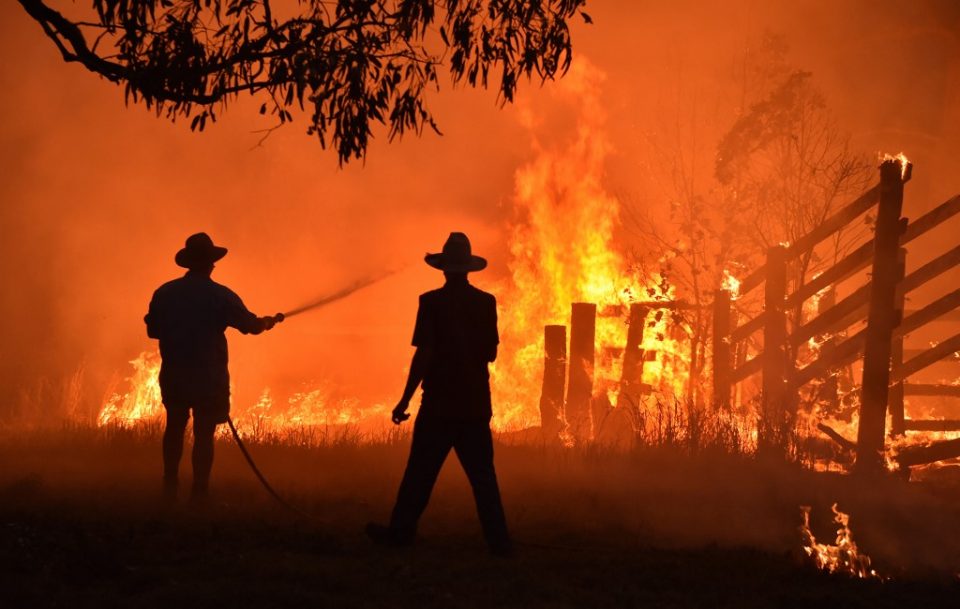
SYDNEY, Australia (AFP) — Australia escaped the worst-feared impacts of bushfires during a day of “catastrophic” conditions but the threat remains high, with dozens of fires still blazing and expectations of a brutal summer ahead.
More than 300 new fires — including 19 that reached emergency level — were sparked Tuesday during high temperatures, gusting winds and dry conditions that were described as the worst on record.
Thousands of firefighters deployed to combat the fires ensured the most serious fears were not realized, with just 50 homes damaged or destroyed and 21 people injured.
“The losses, the damage, the consequences could have been simply enormous across such a broad geographic area,” New South Wales Rural Fire Service Commissioner Shane Fitzsimmons said.
A cool change late in the day then significantly eased conditions, bringing a collective sigh of relief.
Bushfires were still blazing across eastern Australia on Wednesday morning, including 73 in New South Wales and 62 in Queensland state, where searing heat and strong winds are causing major concerns.
Even before unfavorable weather hit, days of fires had killed three people and destroyed at least 150 homes.
New South Wales, where more than one million hectares of land is burning, is braced for tough conditions to flare again on the weekend.
“We will not have all these fires contained before then,” Fitzsimmons said. “We will not have all these fires contained and locked up for many, many weeks, given the enormity of the firefighting effort.”
“Unfortunately, what we need is rain. What we need is meaningful rain. And there is certainly nothing in the forecast for the foreseeable future that’s going to make any discernible difference to the conditions that we are experiencing.”
The hot, dry continent of Australia has long experienced bushfires, but scientists say climate change is exacerbating extreme weather conditions, including a prolonged drought in the country’s east that has created tinderbox-like conditions.
The Bureau of Meteorology says human-caused climate change is also “influencing the frequency and severity of dangerous bushfire conditions” by increasing temperatures, sapping moisture from the environment and causing an earlier and more extreme fire season.
The unprecedented wave of bushfires has brought renewed calls for the conservative government to curb fossil fuels and cut greenhouse gas emissions.
However, Prime Minister Scott Morrison and other senior ministers have repeatedly refused to answer questions about climate change during the unfolding catastrophe.
© Agence France-Presse







